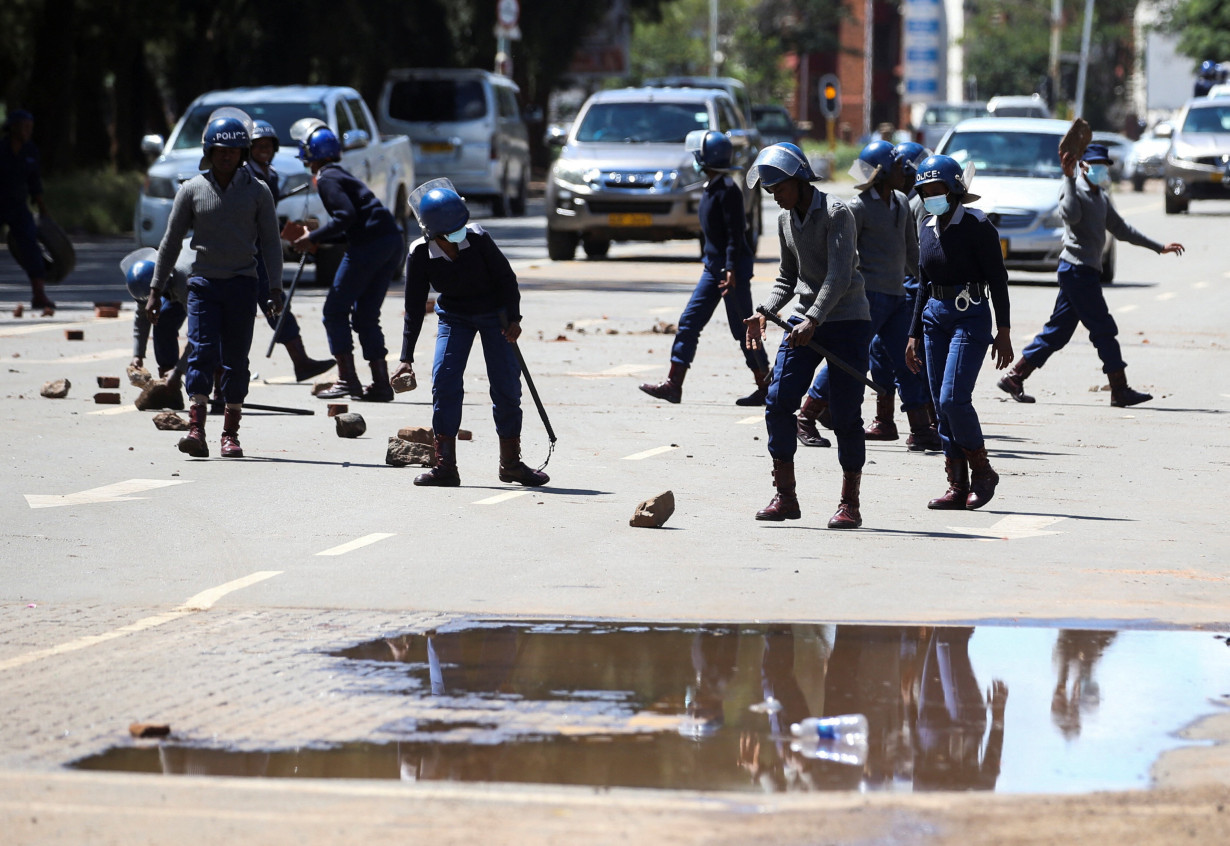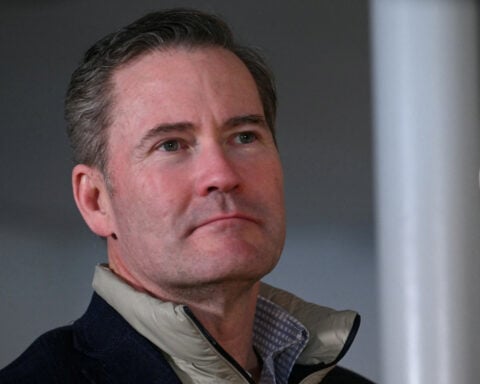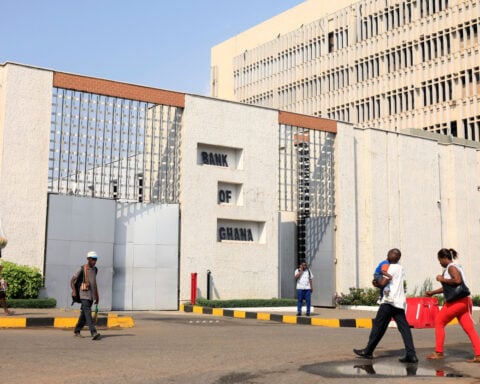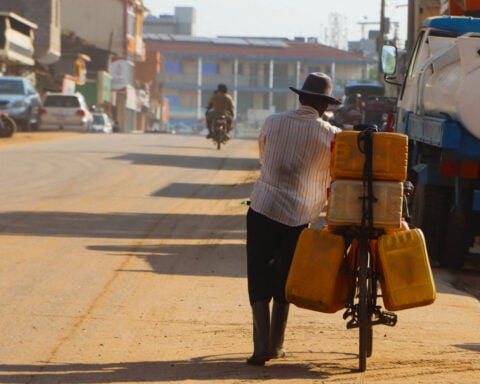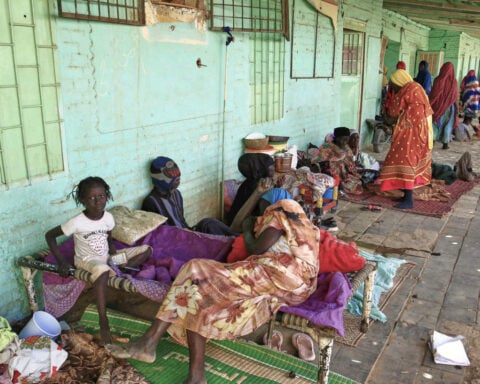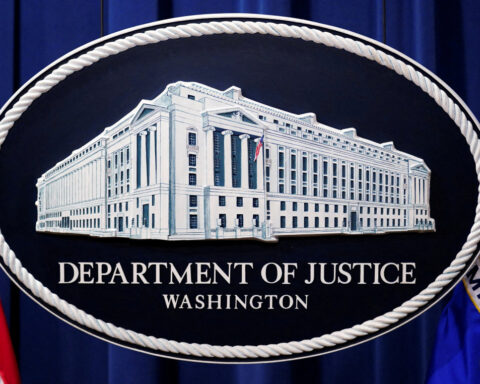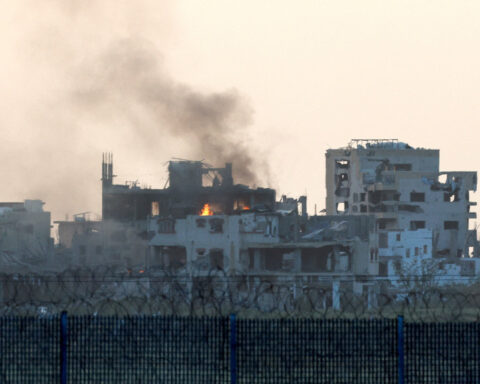By Nelson Banya
HARARE (Reuters) - Police deployed heavily in Zimbabwe's capital and other cities on Monday, largely neutralising a call by veterans for massive protests against plans to extend President Emmerson Mnangagwa's rule.
Zimbabwe's ruling ZANU-PF party said in January it wanted to extend Mnangagwa's term in office by two years until 2030. Mnangagwa, who first came to power in 2017 after his long-term mentor Robert Mugabe was ousted in a coup, is serving his final term.
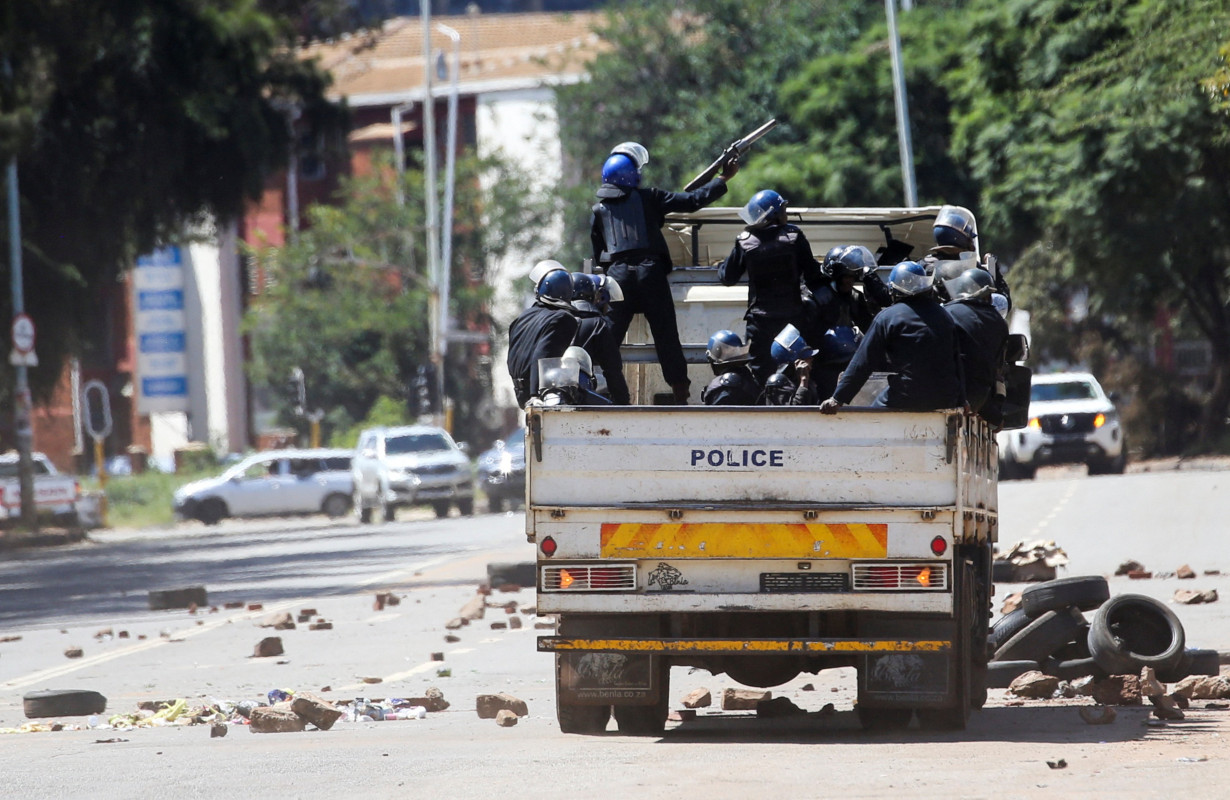
Independence war veterans led by Blessed Geza previously supported Mnangagwa but have turned against him, accusing him of seeking to cling to power.
Anticipating possible unrest, businesses barricaded their premises and car dealerships cleared their showrooms over recent days.
Most businesses, schools and vendors across the capital Harare, as well as in the second largest city Bulawayo and other towns, stayed closed, as large numbers of police patrolled the empty streets.
"The situation in the country is peaceful," police said in a statement, encouraging people to continue with daily activities.
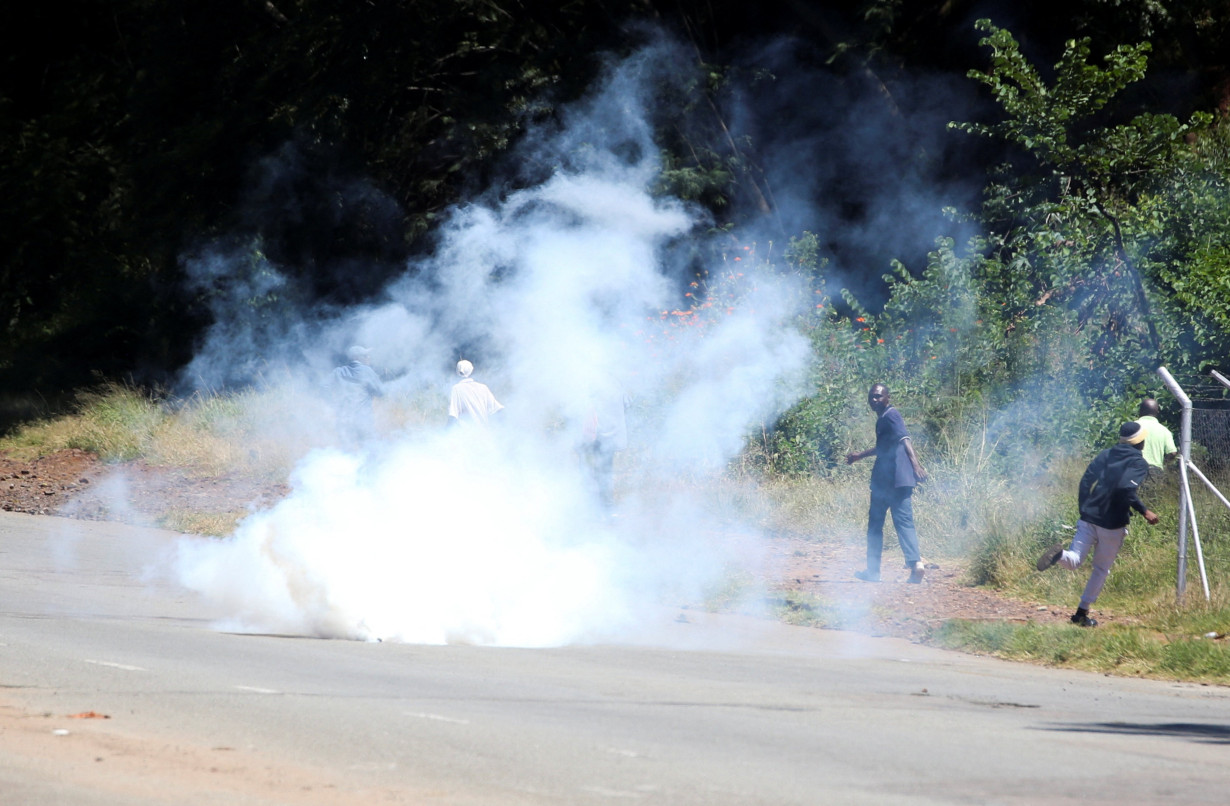
Still, in the western outskirts of Harare police threw teargas to disperse a small group of protesters chanting "we reject 2030!", a reference to the plans to extend Mnangagwa's term.
Some political analysts said the economic shutdown could still send a message to political leaders.
"The stay-away is a massive statement by the masses of Zimbabwe. Those in power have reason to fear," political analyst Ibbo Mandaza said.
Geza, the veteran leader who called for the protest and has mostly communicated through videos posted on social media platforms, did not react publicly on Monday morning.
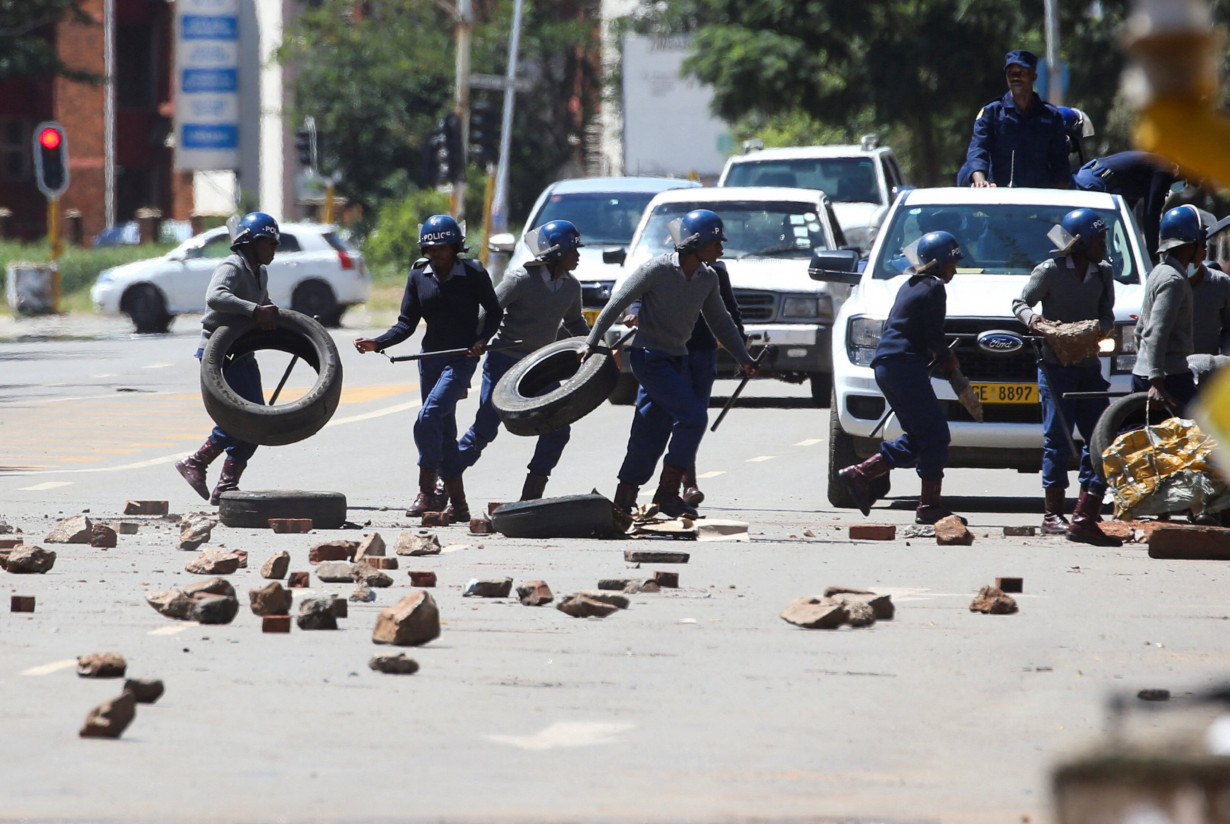
The veterans remain influential within ZANU-PF, and appear to be filling a void left by opposition parties weakened by internal divisions and a war of attrition with the ruling party.
Mnangagwa has repeatedly denied intending to prolong his presidency, but the veterans accuse him of pursuing the plan using proxies.
Zimbabwe's 2013 constitution limits presidents to two five-year terms.
(Reporting by Nelson Banya; Editing by Olivia Kumwenda-Mtambo and Aidan Lewis)

 Trump has begun another trade war. Here's a timeline of how we got here
Trump has begun another trade war. Here's a timeline of how we got here
 Canada's leader laments lost friendship with US in town that sheltered stranded Americans after 9/11
Canada's leader laments lost friendship with US in town that sheltered stranded Americans after 9/11
 Chinese EV giant BYD's fourth-quarter profit leaps 73%
Chinese EV giant BYD's fourth-quarter profit leaps 73%
 You're an American in another land? Prepare to talk about the why and how of Trump 2.0
You're an American in another land? Prepare to talk about the why and how of Trump 2.0
 Chalk talk: Star power, top teams and No. 5 seeds headline the women's March Madness Sweet 16
Chalk talk: Star power, top teams and No. 5 seeds headline the women's March Madness Sweet 16
 Purdue returns to Sweet 16 with 76-62 win over McNeese in March Madness
Purdue returns to Sweet 16 with 76-62 win over McNeese in March Madness
